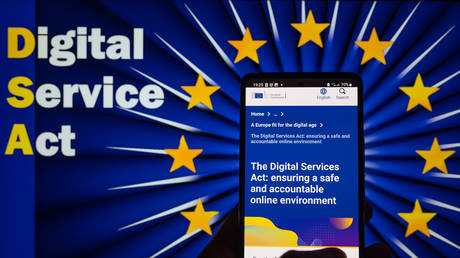How to Start a Catering Business: Essential Steps for Success

Key Takeaways

- Understand the Catering Industry: Familiarize yourself with market dynamics, trends toward healthier options, and the importance of personalized services for your catering business’s success.
- Identify Your Niche: Determine the type of catering you want to offer, such as corporate, social, or boxed meals, based on local demand and gaps in the market.
- Craft a Comprehensive Business Plan: Outline your business model, services, pricing, and marketing strategies to set a strong foundation for your catering venture.
- Address Legal and Financial Aspects: Choose the right legal structure, obtain necessary permits, and establish a clear financial framework to ensure compliance and effective money management.
- Build Your Brand: Create a memorable business name, an appealing logo, and a professional website to establish your identity and attract your target audience.
- Employ Effective Marketing Strategies: Utilize online marketing, social media, and networking partnerships to reach potential clients and enhance customer engagement for your catering services.
Starting a catering business can be an exciting venture that allows you to combine your passion for food with your entrepreneurial spirit. Whether you’re dreaming of serving gourmet meals at weddings or whipping up delicious snacks for corporate events, the catering industry offers endless opportunities. With the right planning and a sprinkle of creativity, you can turn your culinary skills into a thriving business.
Before you dive in, it’s essential to understand the key steps to get your catering business off the ground. From crafting a solid business plan to mastering the art of marketing, each aspect plays a crucial role in your success. If you’re ready to embark on this flavorful journey, let’s explore how to transform your culinary dreams into a profitable reality.
Understanding The Catering Industry

The catering industry offers diverse opportunities for small business entrepreneurs. Understanding market dynamics and types of services can enhance your business strategy and effectiveness.
Market Trends
Analyzing current market trends is crucial for your catering business success. Recent trends indicate a growing demand for healthy and locally sourced food in events. Vegan and gluten-free options gained popularity, showing an increase of 30% in consumer preference. Event personalization also plays a significant role; clients seek tailored experiences that reflect their personal brand. Additionally, technology adoption, such as online ordering platforms and digital marketing, becomes necessary to reach target audiences effectively. Staying informed about these trends helps you adapt your business model accordingly.
Types Of Catering Services
Identifying the right type of catering service for your startup is essential. Here are common types to consider:
- Corporate Catering: This involves providing meals for business meetings, conferences, and events. It often requires strict adherence to budget constraints and dietary needs.
- Social Catering: This includes services for private events like weddings, birthday parties, and family gatherings. Flexibility in menu options and presentation is important here.
- Boxed Meals: With the rise of remote work, offering individually packaged meals gained traction. This model addresses customer acquisition effectively by providing convenience and safety.
- Café or Meal Prep Services: This type caters to daily customer needs, providing pre-prepared meals for busy individuals. Your branding and marketing strategies can drive subscription models in this space.
Researching local demand helps you determine which catering services align with your business goals. Implementing effective marketing strategies, including digital and content marketing, ensures optimal customer engagement.
Planning Your Catering Business

Planning your catering business involves determining the right niche and crafting a business plan that aligns with your goals. Focusing on these key areas lays a solid foundation for success.
Defining Your Niche
Identifying your niche is crucial. You must decide whether you want to specialize in wedding catering, corporate events, parties, or specialty catering, such as vegan or gluten-free options. Research local market gaps to find opportunities where you can fill a need, like ethnic cuisines or specific dietary preferences. Understanding your target audience helps in tailoring your services to meet their unique needs. For instance, catering to corporate clients might require different offerings than catering for social events.
Creating A Business Plan
Developing a business plan serves as a roadmap for your catering endeavor. This plan should outline your business model, including details like your services, pricing structure, and market research findings. Establish the legal structure of your business, whether that’s an LLC, partnership, or sole proprietorship, as this impacts your taxes and responsibilities.
Include sections on marketing strategies to attract your target audience and service delivery methods that enhance customer experience. Additionally, define your growth strategies, focusing on how you plan to scale your business and acquire new customers. Regularly revisit your business plan to adapt to industry trends and market demands. For effective execution, consider seeking mentorship from experienced entrepreneurs or joining a business incubator for guidance and support.
Legal And Financial Considerations

Starting a catering business involves several key legal and financial steps. Understanding these aspects ensures a strong foundation for your new venture.
Registering Your Business
Choose a legal structure that suits your needs. Selecting an LLC, corporation, sole proprietorship, or partnership protects you from personal liability. For instance, an LLC separates personal and business assets, minimizing your risk. Register your business name with the state and consider a DBA if your business name differs from your personal name. Local registration may be necessary, depending on your location.
Obtaining the required licenses and permits is essential. These may include health department permits and food handling certifications. Always verify the specific regulations in your area to ensure compliance. Consulting with legal advice from professionals can help avoid potential issues.
Setting Up Finances
Establish a solid financial framework to support your catering business. Open a separate business bank account to maintain clear financial records. Develop a budget that includes your startup costs, ongoing expenses, and projected revenue. Consider various funding options, such as loans, angel investors, or crowdfunding, to secure the necessary capital.
Implement an effective accounting system to track income, expenses, and cash flow. Proper accounting helps in understanding profit margins and managing taxes efficiently. You may also want to consider hiring an accountant or utilizing accounting software to simplify financial management.
Invest time in market research to identify your target audience and tailor your business model accordingly. Understanding your customers’ preferences helps in customer acquisition and enhancing your sales funnel.
Building Your Brand

Building a strong brand is essential for your catering business. It establishes your identity, communicates your values, and attracts your target audience.
Choosing A Business Name
Choose a business name that reflects your unique offerings while being memorable and easy to pronounce. Ensure it resonates with your target audience and aligns with your overall branding. Check for availability to avoid potential trademark issues and ensure your chosen name can be registered legally as an LLC, sole proprietorship, or another legal structure. Conducting market research can clarify your niche and customer preferences.
Creating A Logo And Website
Create a logo that visually represents your catering business. It should be distinct, compatible with your brand, and adaptable across multiple platforms. Invest in a professional website that showcases your services, menus, and testimonials. Optimize the site for e-commerce to facilitate orders, and utilize SEO techniques to enhance visibility. Incorporate digital marketing strategies, such as email marketing and social media campaigns, to effectively engage your audience and support customer acquisition. Ensure your branding elements convey a consistent message across all digital platforms, promoting trust and professionalism.
Marketing Your Catering Services

You’ll need effective marketing strategies to successfully launch your catering business. Focus on reaching your target audience and communicating your unique offerings.
Online Marketing Strategies
Utilize a professional website to showcase your catering services. Optimize the site for e-commerce, making it easy for potential clients to browse your menu, request quotes, and place orders. Implement search engine optimization (SEO) to improve visibility and attract organic traffic. Leverage social media platforms to engage with your audience through posts, stories, and advertisements. Share high-quality images of your food and highlight client testimonials to build credibility. Email marketing can nurture leads, sending out newsletters with special offers, event highlights, or new menu items. Consider paid advertising options like Google Ads or social media ads as a way to increase customer acquisition.
Networking And Partnerships
Networking plays a crucial role in growing your catering business. Attend local events, trade shows, and culinary festivals to connect with prospective clients and other vendors. Build relationships with event planners, corporate event coordinators, and venues, forming strategic partnerships that can lead to referrals. Collaborate with other small businesses, offering bundled services that enhance customer experiences. Join local business organizations or chambers of commerce to expand your network and gain access to valuable resources. Developing partnerships can create growth opportunities, enabling you to tap into new markets and improve your business model.
Conclusion

Starting a catering business is an exciting journey that blends your passion for food with entrepreneurial spirit. By carefully planning your approach and understanding the market, you can carve out a niche that resonates with your target audience.
Focus on building a strong brand that reflects your unique offerings and utilize effective marketing strategies to reach potential clients. Remember to stay adaptable as you navigate the industry’s evolving trends.
With dedication and creativity, you can turn your culinary dreams into a thriving business that not only satisfies appetites but also creates memorable experiences for your clients. Embrace the challenges ahead and enjoy the rewarding path of entrepreneurship in the catering world.
Frequently Asked Questions

What do I need to start a catering business?
To start a catering business, you need a solid business plan, a clear understanding of your niche (like wedding or corporate catering), necessary licenses and permits, and a marketing strategy to attract clients. It’s also essential to establish a financial plan and choose a suitable legal structure for your business.
How do I find my niche in catering?
Finding your niche involves researching local market demands and identifying gaps. Consider what types of catering services are in high demand, such as vegan or gluten-free options, and reflect on your culinary skills and passions to determine where you can excel.
What are the legal requirements for a catering business?
Legal requirements include obtaining the necessary licenses and permits, often specific to food service, such as health department certifications. Choosing the right legal structure, such as a sole proprietorship or LLC, is also essential to protect your assets and comply with local regulations.
How important is marketing for a catering business?
Marketing is crucial for a catering business as it helps you reach your target audience and communicate your unique offerings. Implementing strategies like SEO, social media engagement, and having a professional website can significantly enhance your visibility and attract clients.
What financial considerations should I keep in mind?
Establish a solid financial framework by opening a separate business bank account, creating a budget, and exploring funding options. Implementing an accounting system to track income and expenses helps manage profit margins and ensures you are prepared for tax obligations.
How do I build a brand for my catering business?
To build your brand, choose a memorable business name, create a distinct logo, and develop a professional website. Ensure consistency in branding across all platforms and engage in market research to align your brand with customer preferences and expectations.
What types of catering services can I offer?
You can offer various types of catering services, including corporate catering, wedding catering, social event catering, boxed meals, and meal prep services. It’s essential to tailor your offerings based on local demand and your expertise to differentiate your business.
How can I ensure success in my catering business?
Success in catering involves thorough planning, understanding market trends, effective marketing, and adapting to customer needs. Networking with other vendors and continuously updating your business plan to reflect industry changes can also enhance your growth opportunities.
Image Via Envato
This article, "How to Start a Catering Business: Essential Steps for Success" was first published on Small Business Trends
What's Your Reaction?
 Like
0
Like
0
 Dislike
0
Dislike
0
 Love
0
Love
0
 Funny
0
Funny
0
 Angry
0
Angry
0
 Sad
0
Sad
0
 Wow
0
Wow
0




























































































